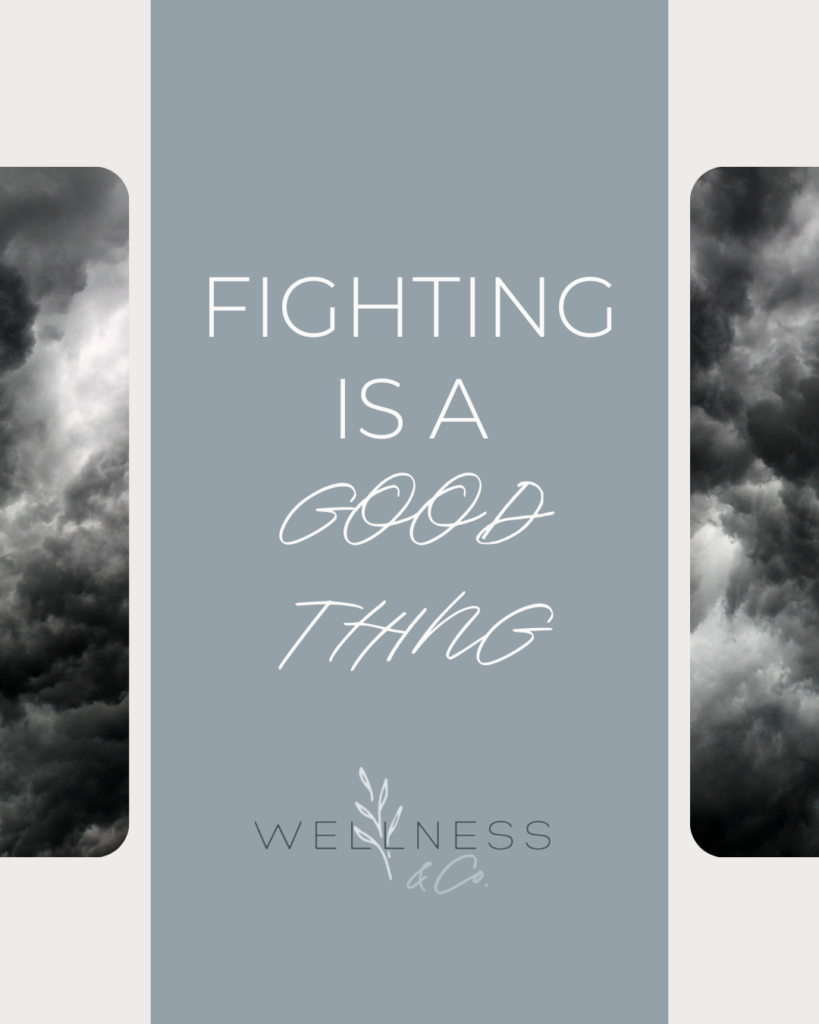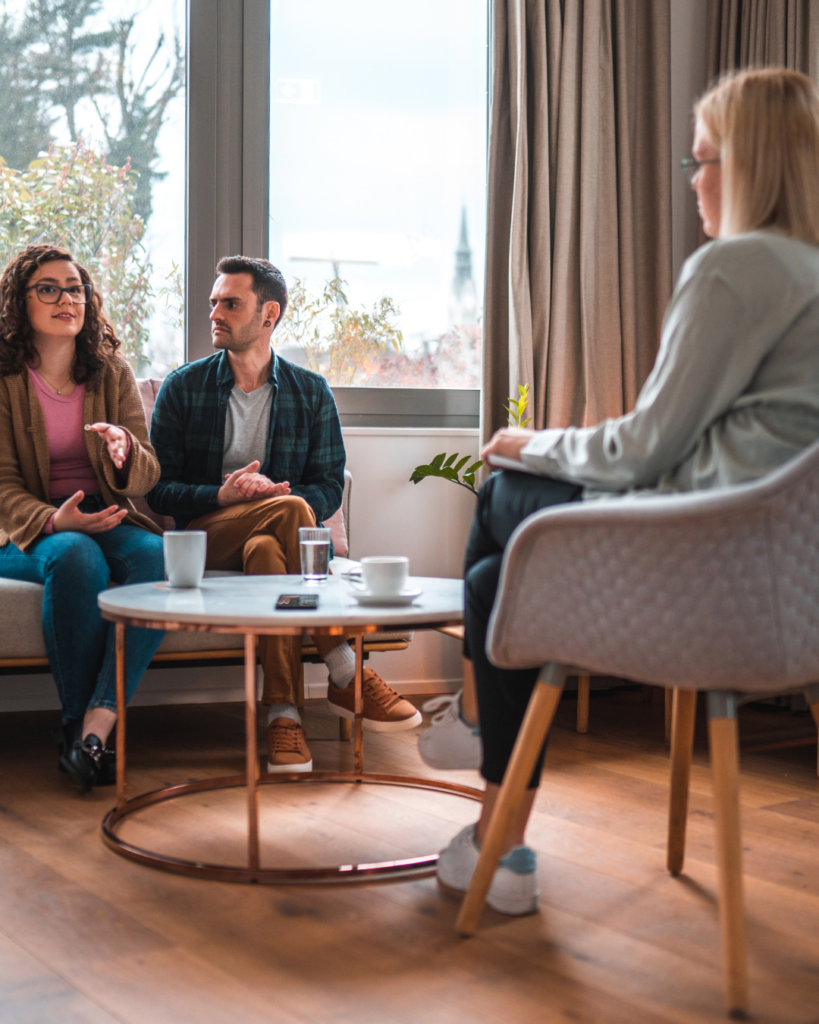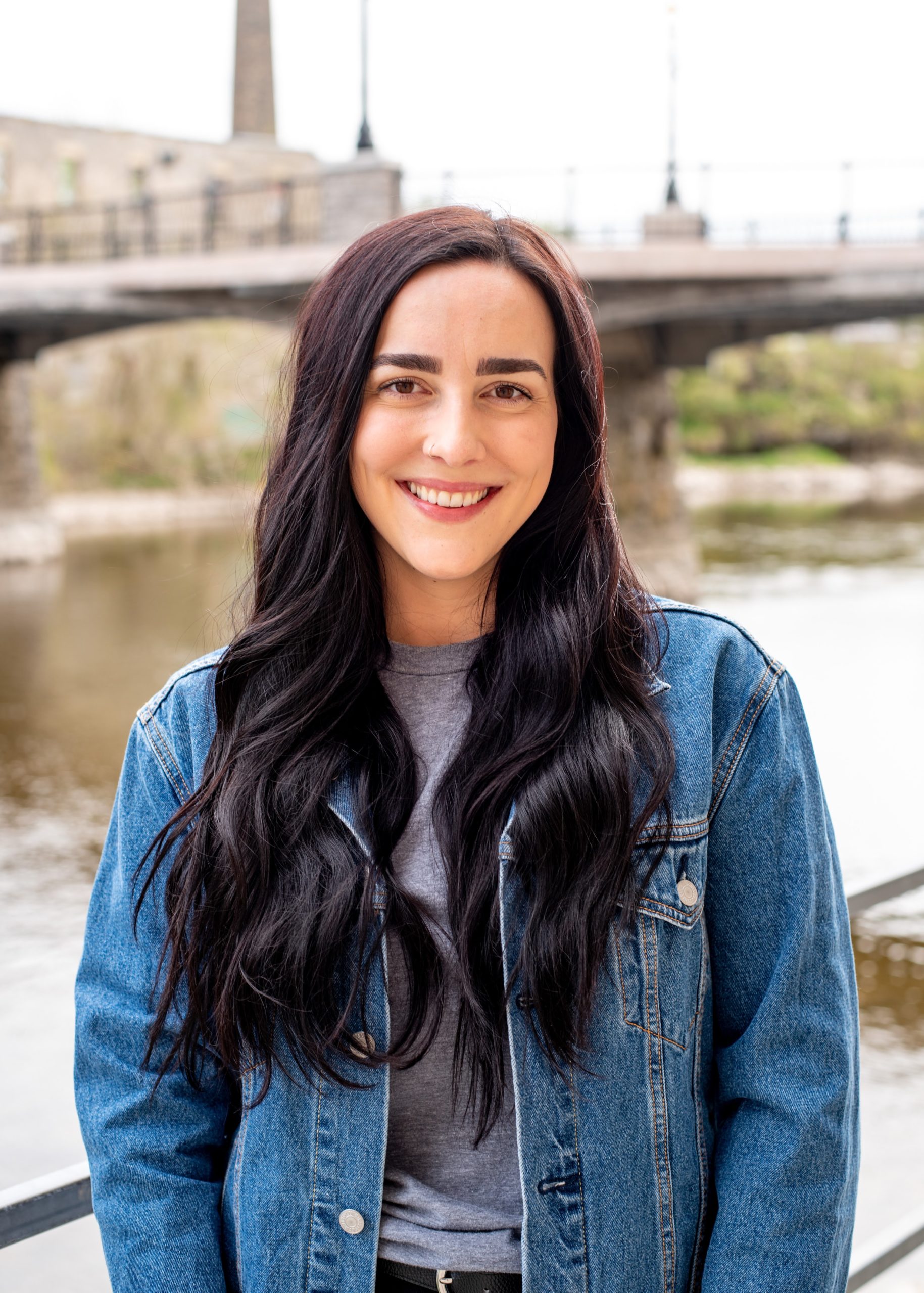Follow
Wellness & Co.
Hi, I'm Dr. K, Wellness & Co. is a growing therapy/coaching practice and educational hub for prospective clients based in Maryland and virtual clients all over the world!
Hi, I'm Dr. K
free guide
e -books
e -course
Fighting is a Good Thing
August 27, 2024
By Amanda Clegg, Relationship Coach, CLC, M.NLP
Reading Time: 4 minutes

Okok, the title “Fighting Is a Good Thing” might be a little strange to read but just hear me out…
What I’m not saying is that constant conflict is a good thing, nor am I saying that I want you to be fighting in your relationship.
What I AM saying is that learning how to disagree respectfully and work through difficult issues together IS a good thing.
Here’s a common theme I see after the first few sessions with my couples:

Me: “So, how have the two of you been doing since I’ve seen you last?”
Clients: “Well, we’re good I think. We haven’t been fighting.”
On the surface, this might sound really great. But if we dig a little deeper, we can see that might not be the case. Most likely, nothing has been truly healed. As much as I (and you) may want it to, it just doesn’t happen that fast. While I am certainly happy there is less conflict, what I also really care about is how the conflict is being resolved. Key word: resolved. AKA not being recycled.
Hard things and hurt feelings are going to arise in our most intimate relationships, it’s inevitable. (Yes, even in the most seemingly perfect relationships!)
SO, learning how to fight is what matters here. I like simple and tangible, so imma break it down below. I also appreciate alliteration – you’re welcome in advance if you do, too!
- Remember: You’re a team and you love each other – it helps to name this. Often in conflict it looks and feels like it’s us vs. our partner, when in reality it’s us vs. the problem. Remember this and you’re well on your way to resolving conflicts with more ease and gentleness! Show support to your partner, they’re bringing things up because they care (just make sure you do it WITH care). And let’s be honest, it can be scary AF to be vulnerable when we’re learning how to do it. Example: “Thank you for sharing this with me, I’m glad you feel comfortable to voice yourself. I love you. We’re a team, and we will work through this together.” If I’ve learned anything about communication – how we express ourselves really, really matters. It combats defensiveness and contributes to a heck of a lot of closeness.
Want to learn more about how to bring up and work through difficult feelings? Check out this four-part blog series for common communication habits and their antidotes: Part 1 – Part 2 – Part 3 – Part 4
- Recognize: This is where inner work is supa dupa important. Deepening in self-awareness allows us to understand what is really going on and heal the painful cycles we get caught in. What underlying feelings are coming up? What wounds are being activated? What are we looking for from the conversation? Example: I feel hurt…I’m afraid of losing you…I need reassurance.
- Relational Safety: This is the bedrock for secure relationships. Talking about issues in our relationships, no matter how big or small, can feel uncomfortable, frustrating, or anxiety inducing. Knowing that our partner is there to see us, hear us, understand us, and stay with us, is something that we need. Example: What would make me feel safe is eye contact, some sort of physical touch like holding your hand, a kind tone, listening with curiosity, and telling me that you’re not going anywhere.
- Repair: I call this closing the loop. It’s really common for conflicts to become a cycle, and that is because we recycle the issues and go for a loop-de-loop corkscrew roller coaster ride – and not one of the fun ones! From pushing our feelings down, needs getting missed and being unmet, or not taking the time to understand the root cause, there are lots of reasons why we don’t feel a sense of resolve. We need to check in and work together here. Example: Do you feel heard and understood from this conversation? What do you need moving forward from me? What would make you feel as though I really “get it?”. And within you – what are your own growth edges that you’re going to be actively working on?

Although I said above that I like simple, I know enough to know that this is BOTH simple AND not easy. There are so many layers that come into play here. Taking the time to understand your Enneagram type (which largely dictates not only our specific wounds, but also our conflict styles – read more about this here), your attachment style, your relational history, and your upbringing, are just some of the factors that will inform the way in which you show up during conflict – and determine what you can do differently. If you’re looking for more support, I’d love to meet with you!
Repeat after me: Conflict can create closeness. Conflict can create closeness. Conflict can create closeness.
(Had to slip in a lil’ more alliteration – couldn’t help myself!)
Big love,
Amanda
Amanda helps teens, individuals, and couples create secure relationships within themselves and with each other. Her favorite (and most impactful!) tool to use is the Enneagram, which deepens awareness, understanding, and compassion so that we all can continue to foster meaningful connections in our day to day lives, moment by moment.
Leave a Reply Cancel reply
CONTACT
Start Here
BLOG
OUR TEAM
SHOP
ABOUT
©2025 Wellness & Co. | All Rights Reserved | Design by EverMint Design Studio
BACK TO TOP
connect with us on instagram
